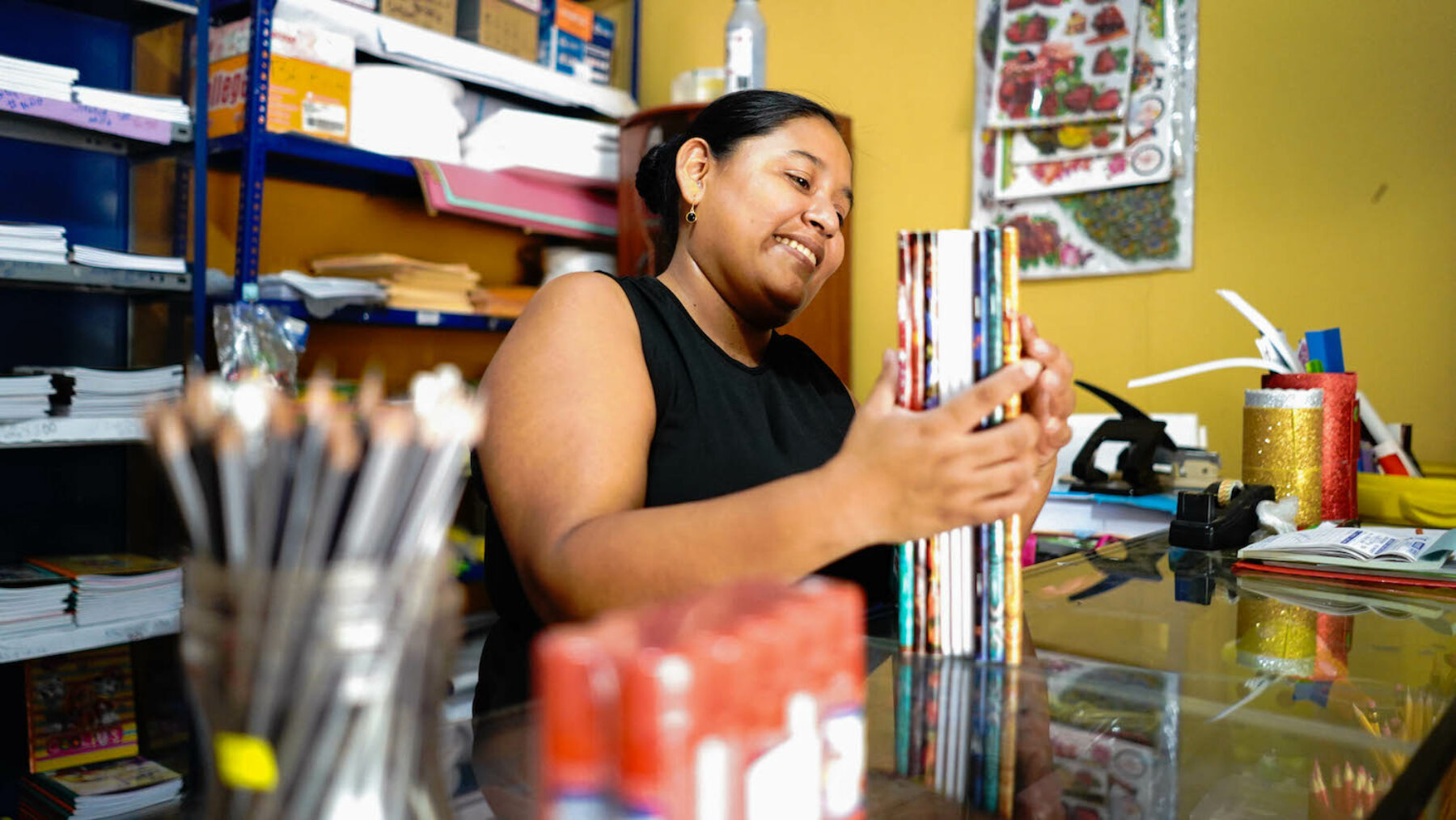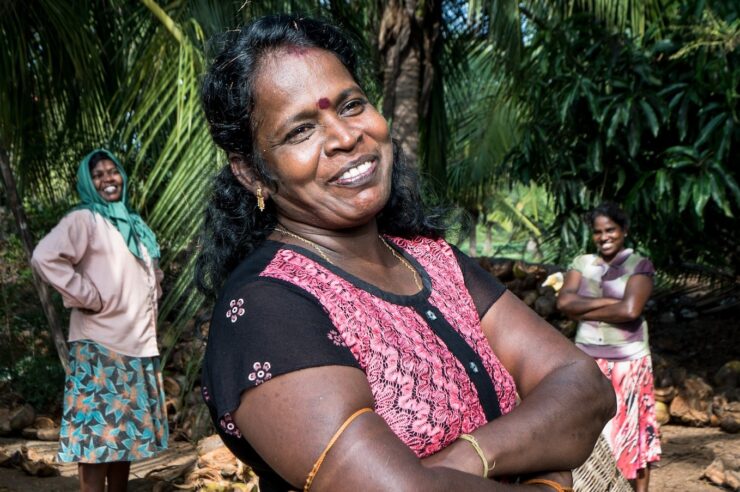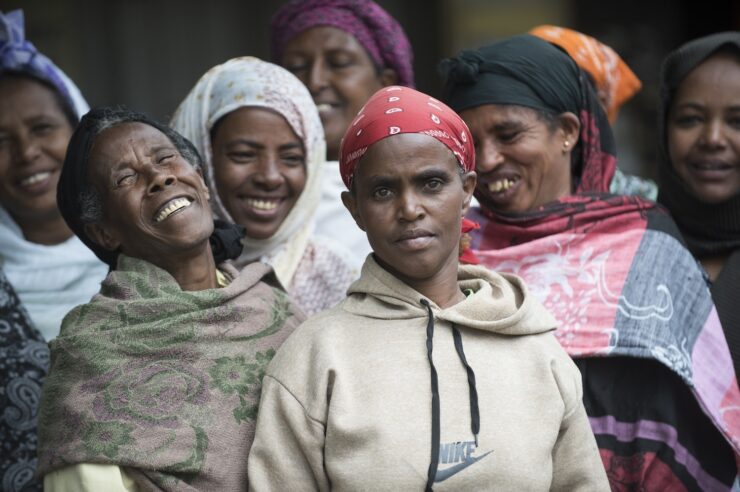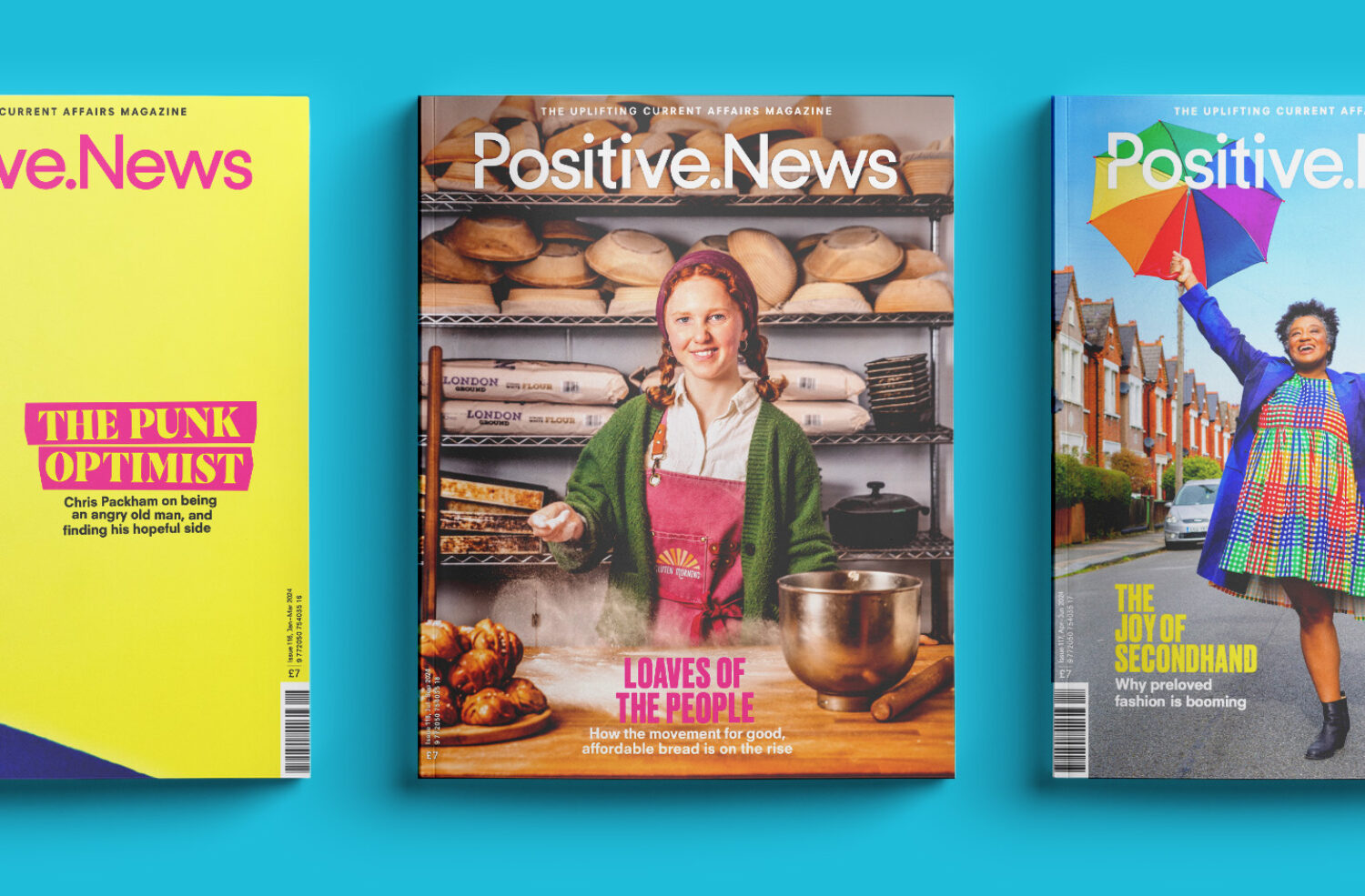‘Women can transfer the skills we have from stretching the family income into running businesses,’ says Martha Sócola Morales, an entrepreneur from Peru
Do you have a bank account? Have you ever taken out a business loan or a mortgage? For millions of women around the globe, simple financial services can seem impossible. Yet giving women better access to finance could improve their lives immeasurably, as well as unlock USD$330bn (£256bn) in annual global revenue, according to development organisation Care.
Research by Care released this week documents the “enormous” economic and social potential of women who have been helped by Care’s project Access Approved. From Africa to South America, some of the women have increased their income by 500 per cent. Read on for their inspiring stories.
For Martha Sócola Morales, 35, an entrepreneurial spirit was in evidence early on. While at school, she used to buy sweets in bulk and sell them on to her classmates. It wasn’t just a canny business idea, but a means of survival. Though she had a happy and peaceful childhood, growing up with two sisters, there were periods of difficulty when her father – an agronomist – didn’t have a job. Selling sweets meant that she had something to eat at break time.
Now, Morales runs her own stationery store in Peru. Her husband works in the banana plantations, and they have two children at primary school. After her early career in the confectionary business, she went on to study agro-industrial engineering.
She paid for her university expenses by selling beauty products, which is what her mother did to maintain the family income when her husband was out of a job. Morales also made money by typing up papers for her classmates. It was this side hustle at university that inspired her future enterprise.
Morales tells Positive News: “I started the business in my home offering a typing and printing service with my computer, but then I realised that people also needed extra things, like envelopes and pens and other stationery. I also discovered that people wanted a photocopying service. I didn’t have enough money to go and buy a machine like that.”
At that time, no other place offered all these services under one roof, so Morales developed a business plan. After spotting the gap in the market, she knew she needed a loan to expand her business. In Peru, it is standard practice for financial institutions to credit-check both the husband and the wife when either of them takes out a loan. This practice is meant to be inclusive of women, but if a husband has a pre-existing debt, this can have a negative impact.
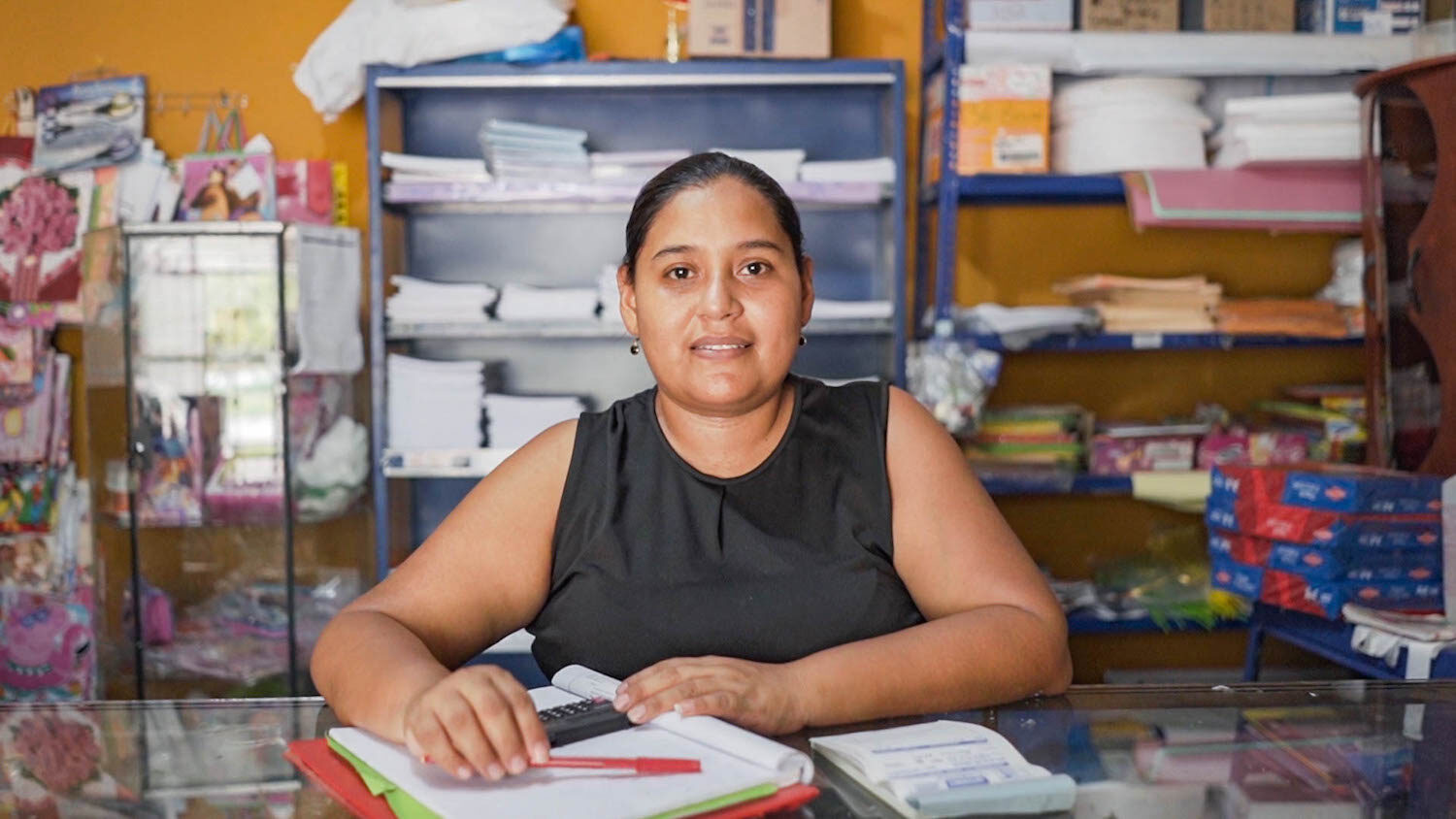
‘We have a lot of ideas in our heads but often we cannot bring them to fruition because we lack the financial means,’ says Morales
“After I got married, that was when the difficulties started,” Morales says. “My husband had a pending debt so they denied me the loan and at that point all doors closed to me.”
Reluctant to give up hope, she discovered a financial institution that offered group loans just for women: “The banks and financial institutions here in Peru have had to adapt to change. Before they only gave loans to men because they had a stable job and they could deduct from the payroll. But now women are entering the business environment,” she explains. “Now there are institutions that only give loans to women because they believe that women are more responsible than men at repaying loans. We are punctual and focused on paying back our loans.”
The requirements set by the financial institution offering group loans were far less stringent than at high street banks, with no guarantee or collateral needed. Morales is now in a group with 18 other women, each of them receiving different levels of loans for their individual businesses. One disadvantage of this system is that if one member fails to repay on time, it impacts the whole group. Finding responsible members is therefore vital. “We all repay our loans every 14 days at a low interest rate,” notes Morales. “We get a lower rate because we repay over a shorter time period, compared to the banks.”
Morales received training in business management through Care’s Women in Enterprise programme. Having grown her business and benefited from a loan herself, she is now looking to help others in a similar way.
We can transfer the skills we have from stretching the family income into running businesses. We won’t go bankrupt, that is the nature of women
The beginning of the school year is a particularly expensive time for parents in Peru as schools provide a lengthy list of items that the children need to bring. Many find it difficult to manage all these costs, particularly those working in agriculture, which is the main employment locally.
“I try to support the families that come to my shop by providing them with credit,” says Morales. “We then agree repayment terms, and of course I add a little percentage for my loan. I am a mother too, I have had moments before when I couldn’t afford all these things.”
“If women in families are also providing an income and not just relying on the man, we can provide a better quality of life for our children. We can transfer the skills we have from stretching the family income into running businesses. We won’t go bankrupt, that is the nature of women.”
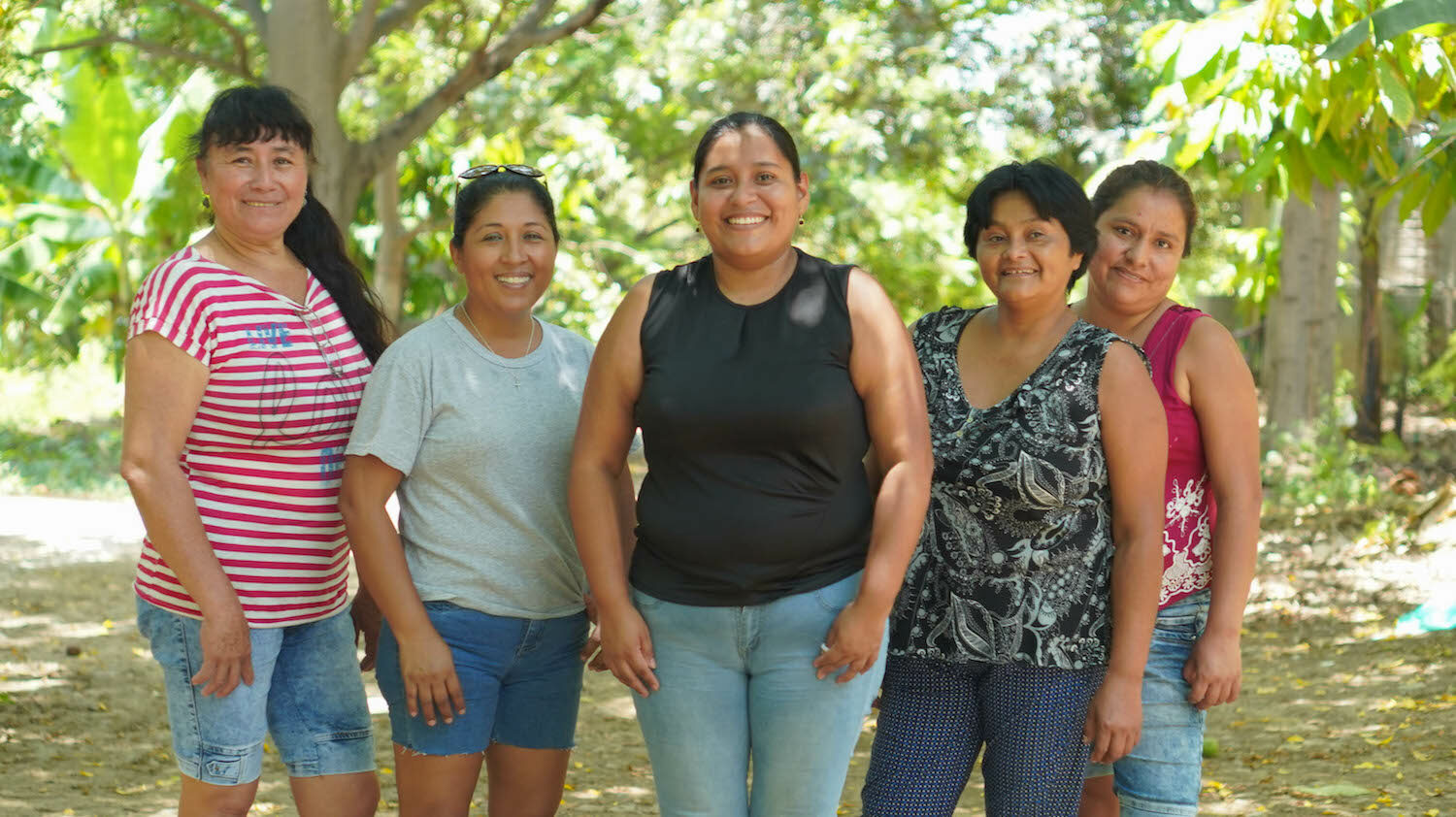
Morales (pictured, centre, alongside some of the women she has a group loan with) has now set up her own stationery shop
Morales is frequently approached by banks offering loans, but when she scours the small print they usually ask for the title deeds to the home or land, which many women in Peru do not have.
Her advice for financial institutions is clear: “It’s important for banks to create more services for women. We are more responsible with our payments, can manage money well and repay promptly. We have a lot of ideas in our heads but often we cannot bring them to fruition because we lack the financial means. And apart from helping us, behind us they are helping a whole family.”
